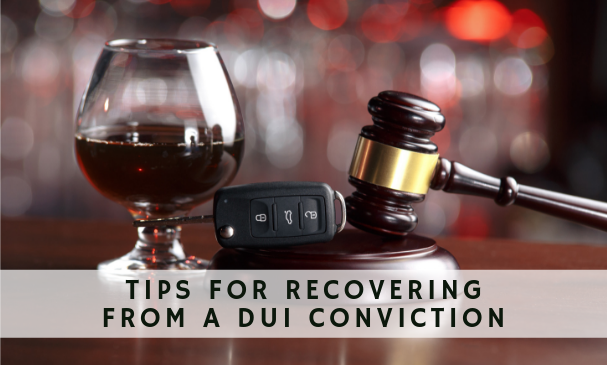Tips for Recovering from a DUI Conviction

Receiving a DUI conviction is a scary—as well as stressful—occurrence. It can feel as though your life is now completely off-course and that you’ll never recover. When this happens, it may take you a while to get back on your feet. It’s important you take the time to come to terms with what happened and decide what your next steps will be. There is bound to be long-term consequences and you’ll need to learn how to navigate them. We provide a few ways that you can begin your road to recovery after receiving a DUI.
Get SR22 Insurance
After receiving a DUI, you’re required to obtain an SR22. This is a proof of insurance that’s held by high-risk drivers. An SR22 can be very expensive, but fortunately, some companies offer competitive quotes for eligible applicants. If you find the right company, getting an SR22 insurance online can be a painless experience.
Seek Out Support
Your initial instinct upon receiving a DUI may be to run away—either physically or metaphorically. Don’t make any impulsive choices; stop, breath, and evaluate your situation. If you were to move in pursuit of a new start, factors such as your SR22 coverage and the penalty on your background check will still follow you. It’s better to stay in place and receive help from the people around you. Reach out to family and friends and see what they can offer in terms of support and accountability.
We understand that there are circumstances where family members cannot offer their assistance. Should that be the case, you could consider starting therapy. GoodTherapy is an excellent place to begin your search for help. We also recommend seeking out local support groups. Below are some online resources you can use find the group that’s right for you.
Stay Sober
One of these most important things you can do is avoid alcohol. You need to prove that you can be accountable to not only those around you but to yourself as well. To avoid relapsing, you’ll want to identify and learn how to avoid potential triggers.
Some common triggers include:
- People you used to drink with
- Certain environments
- Stress
- Certain times of the day
The good news is, apps such as Mood Tracker can help you to track changes in your mood and make it easier to identify triggers. If you’re diligent about keeping everything in one place, you may even start to discover patterns. Once you’re able to determine what provokes your need to drink, share your discoveries with a healthcare professional. They’ll help you devise a solution on how you can avoid these occurrences.
Find New Hobbies
If you’ve struggled with alcohol addiction, you may find yourself with a lot of free time during your remission. The risk of relapse may be higher if you sit with your thoughts and allow large pockets of empty time. Navigate this by filling your time with hobbies that excite you. Explore some of your older passions or try something completely new.
Forgive Yourself
For many, the hardest step in this process is your willingness to forgive yourself. Unfortunately, the effects of your DUI are going to stick around for a while, however, you’ll have to learn how to grow despite this. Take the time you need to recover and decide what’s next—this is a lesson learned. Use this new perspective to jump back into your life on a more positive note.

Recent Comments